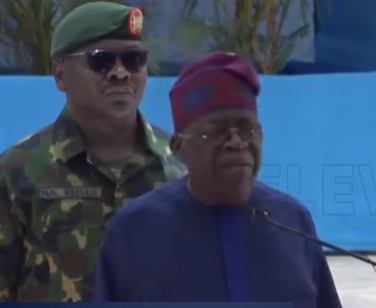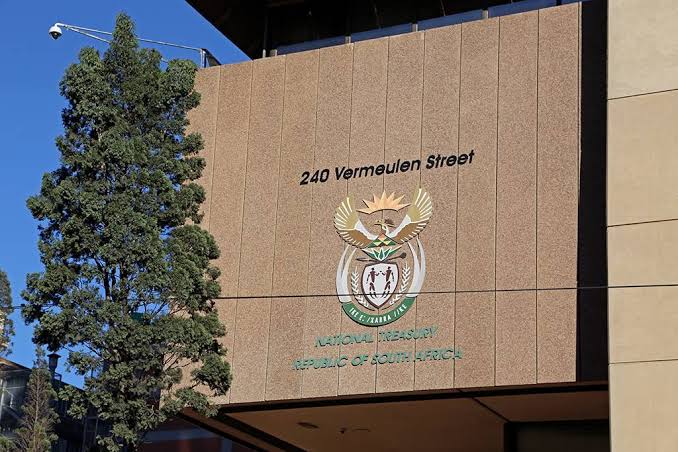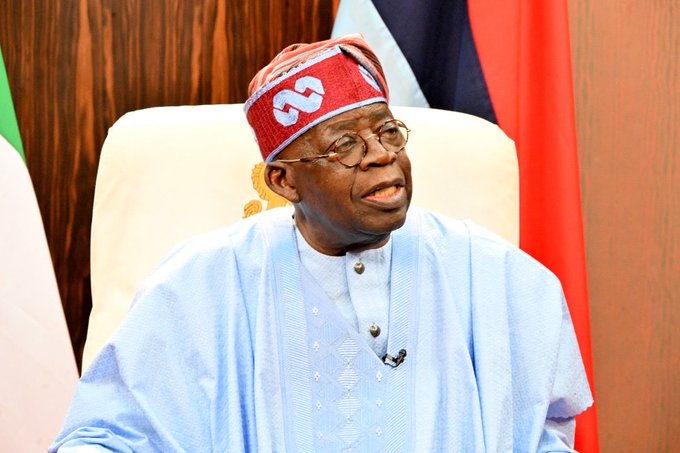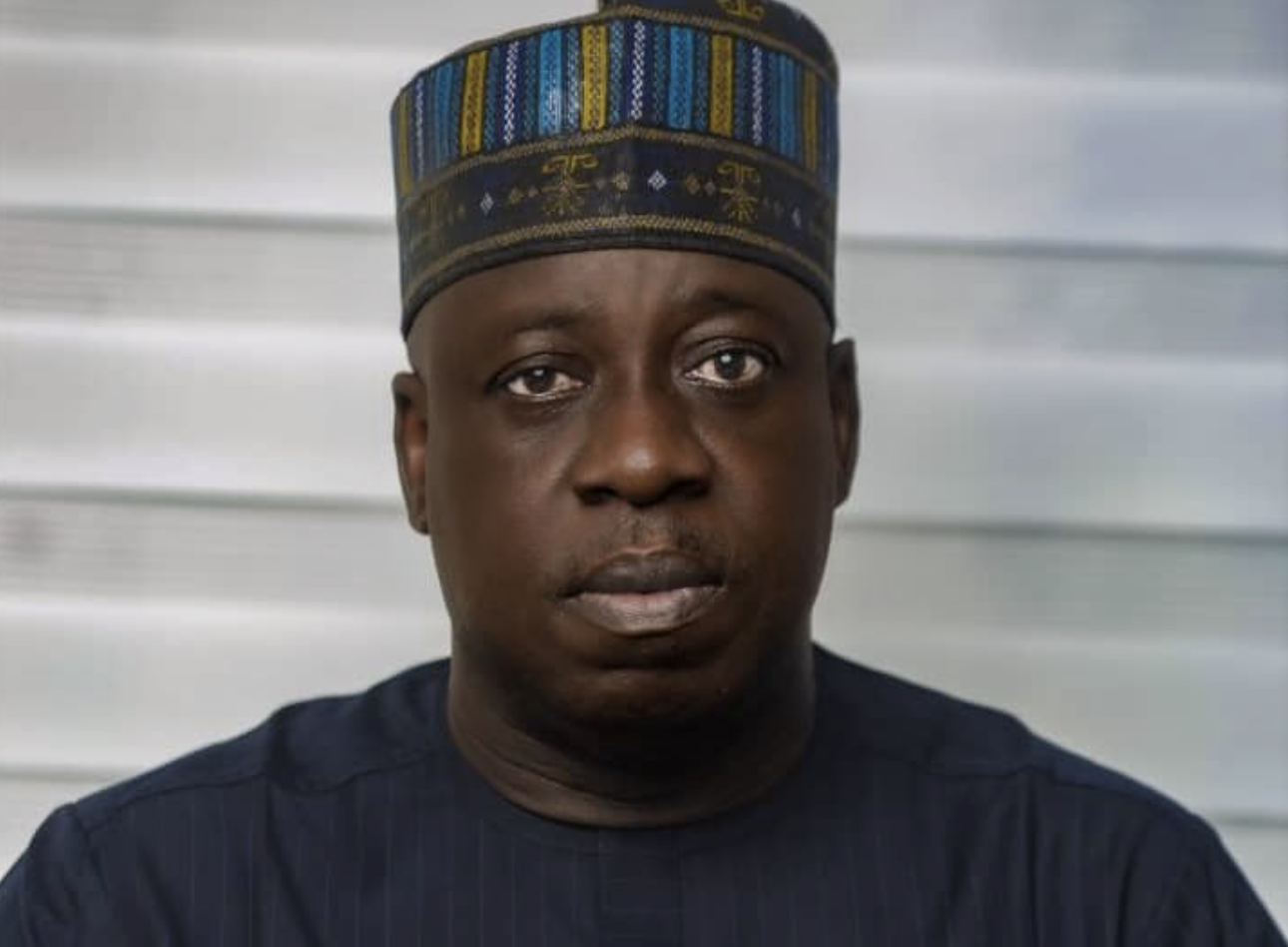Tinubu's Independence Day Bombshell: Economy 'Near-Collapsed' But 'Worst is Over'

President Bola Tinubu delivered a significant national broadcast on Wednesday, October 1, 2025, commemorating Nigeria’s 65th Independence Anniversary. During his address, he urged Nigerians to refrain from speaking negatively about the nation, asserting that the country has decisively "turned the corner" and that "the worst is over," with prosperity on the horizon. He called for a collective pride in Nigeria’s forefathers, acknowledging 65 years of independence as a remarkable achievement and reaffirming the belief in a united, all-inclusive government committed to caring for the elderly and vulnerable, educating children, and strengthening the healthcare system. The President expressed confidence that Nigeria has progressed significantly from its position a decade ago, attributing this advancement to the change delivered by his administration.
President Tinubu outlined his administration's 28-month tenure, detailing a series of courageous and fundamental reforms aimed at revitalizing an economy he described as "near-collapsed," a consequence of decades of fiscal policy distortions and misalignment. These reforms included the elimination of corrupt petroleum subsidies and multiple foreign exchange rates, which had fostered a rentier economy benefiting a select few. The administration redirected these freed resources towards critical sectors such as education, healthcare, national security, agriculture, and essential economic infrastructure, including roads, power, broadband, and social investment programs, ensuring greater resources for all tiers of government.
His address highlighted twelve remarkable economic milestones achieved through sound fiscal and monetary policies. Firstly, Nigeria saw a record-breaking increase in non-oil revenue, surpassing the 2025 target by August with over N20 trillion. September 2025 alone recorded N3.65 trillion, a 411% increase compared to May 2023. Secondly, fiscal health was significantly restored, with the debt service-to-revenue ratio reduced from 97% to below 50%. The infamous "Ways and Means" advances that threatened economic stability were paid down. Thirdly, the nation's foreign reserve position strengthened, reaching $42.03 billion in September 2025, the highest since 2019. Fourthly, the tax-to-GDP ratio climbed to 13.5% from less than 10%, with further expansion expected from a new tax law taking effect in January, aimed at broadening the tax base and providing relief to low-income earners.
Fifthly, Nigeria became a net exporter, recording a trade surplus for five consecutive quarters. The Q2 2025 trade surplus amounted to ₦7.46 trillion ($4.74 billion), the largest in approximately three years, with manufactured goods exports surging by 173%. Non-oil exports now constitute 48% of total exports, indicating significant economic diversification. Sixthly, oil production rebounded to 1.68 million barrels per day from barely one million in May 2023, attributed to improved security, new investments, and better stakeholder management in the Niger Delta. Nigeria also achieved domestic PMS refining for the first time in four decades and emerged as Africa's leading exporter of aviation fuel. Seventhly, the Naira stabilized from the turbulence and volatility of 2023 and 2024, with a substantial reduction in the gap between official and unofficial market rates, and the abolition of multiple exchange rates. The currency's value against the dollar is no longer solely determined by crude oil price fluctuations.
Eighthly, under social investment programs, N330 billion has been disbursed to eight million households, supporting vulnerable Nigerians. Ninthly, the coal mining sector experienced a dramatic recovery, growing by 57.5% in Q2 after a 22% decline in Q1, solidifying the solid mineral sector's pivotal role in the economy. Tenthly, the administration is expanding transport infrastructure across the country, covering rail, roads, airports, and seaports. Rail and water transport grew by over 40% and 27% respectively, with major projects like the 284-kilometre Kano-Kastina-Maradi and Kaduna-Kano Standard Gauge rail lines nearing completion. Work progresses on the Lagos-Calabar Coastal Highway and Sokoto-Badagry Highway, and $3 billion was approved for the Eastern Rail Project. Eleventh, international recognition of Nigeria's efforts led to upgraded outlooks from sovereign credit rating agencies and an unprecedented boom in the stock market, with the All-Share Index rising from 55,000 points in May 2003 to 142,000 points by September 26, 2025. Finally, the Central Bank slashed interest rates for the first time in five years at its last Monetary Policy Committee meeting, signaling confidence in the country’s macroeconomic stability.
Beyond economic achievements, President Tinubu urged citizens to remember and honor the sacrifices and grand dreams of Nigeria’s founding heroes and heroines, including Herbert Macaulay, Dr. Nnamdi Azikiwe, Sir Abubakar Tafawa Balewa, Chief Obafemi Awolowo, Sir Ahmadu Bello, Margaret Ekpo, Anthony Enahoro, Ladoke Akintola, Michael Okpara, Aminu Kano, and Funmilayo Ransome-Kuti. He acknowledged that while Nigeria may not have achieved all the lofty goals of its forebearers, it has not strayed far from them. Over 65 years, the nation has made tremendous progress in economic growth, social cohesion, and physical development despite profound challenges such as a civil war, military dictatorships, and political crises. He highlighted significant advancements in education, noting that secondary schools increased from 120 in 1960 to over 23,000 by 2024, and tertiary institutions grew from just two to 274 universities, 183 polytechnics, and 236 Colleges of Education by the end of 2024. Growth was also evident across healthcare, infrastructure, financial services, manufacturing, telecommunications, information technology, aviation, and defence sectors.
The President reiterated his
You may also like...
Rain Does Not Fall on One Roof Alone: A Call to Remember Our Shared Humanity

Once, rain brought people together, now it only reminds us how far apart we’ve grown. The proverb “Rain does not fall on...
The Friend of a Thief Is Also a Thief: How Society Enables Yahoo Culture

Yahoo culture thrives not just through scammers, but through our silence and applause. When we celebrate stolen success,...
God Loves the Sinner But We Kill Him Anyway: Queerness and the Hypocrisy of Morality in Nigeria

The killing of Hilary, a queer man in Port Harcourt, exposes the dangerous hypocrisy in Nigeria’s moral and religious cu...
The Digital Banking Boom: How Mobile Finance Is Transforming Africa’s Economy

Africa’s digital banking boom is rewriting the rules of finance. From mobile wallets to fintech startups, millions are n...
What if the Internet Disappeared Overnight?

What if the Internet vanished overnight? Imagine waking up to a world without Wi-Fi, social media, or streaming, Silence...
South Africa's $500 Million Innovative Financing Initiative: An African Blueprint

The South African National Treasury just launched a $500 million foreign- currency financing initiative to redefine its ...
Brentford Shake-Up: Keith Andrews Inherits Challenging Post-Frank Era

Keith Andrews has steered Brentford to an unexpected resurgence in the Premier League, defying low expectations followin...
El Clásico Erupts: Wenger Slams Barca, Vinicius Threatens Exit After Fiery Match
)
Real Madrid secured a 2-1 El Clásico victory over Barcelona, extending their La Liga lead, but the match was marred by V...




